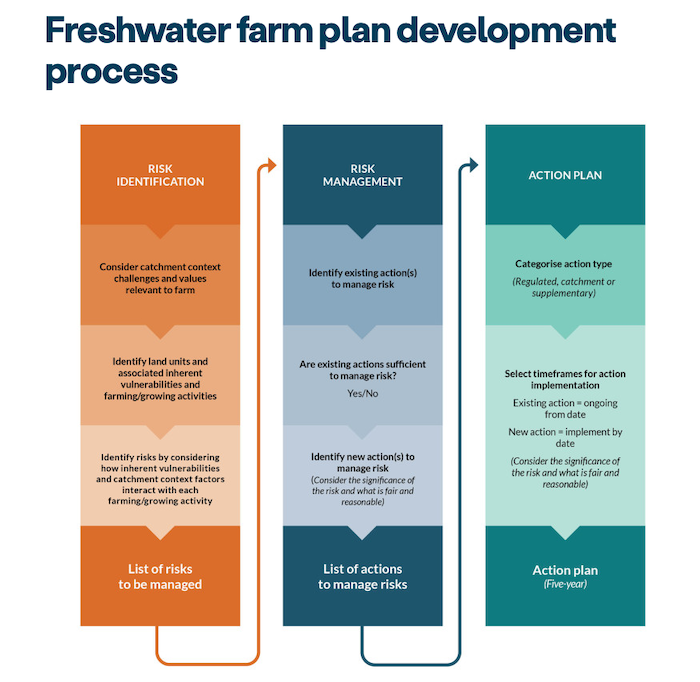Freshwater Farm Plans on the horizon
Anna Robb
11 July 2023, 5:57 PM

Central farmers and growers need to start thinking about property-specific Freshwater Farm Plans (FWFP), which will be rolled out in Otago early next year.
All farmers and growers with 20 hectares or more in arable or pastoral use, five hectares or more in horticultural use, or 20 hectares or more of combined use need a FWFP.
In a media release, Otago Regional Council (ORC) regulatory acting general manager Joanna Gilroy said councils and rural communities are feeling the pressure of understanding and implementing many government reforms in the freshwater space.
“We need to implement this national legislation to achieve great outcomes for our environment, and to do this we need to support our communities.”
Joanna said the cornerstone of the FWFP is to support and focus on-farm actions to address any impacts on freshwater, wetlands and ecosystems.
“ORC and its staff are here to fully support this implementation. In the months ahead and through next year we will have staff available to help and are proposing to run workshops and one-on-one meetings with farmers.
“The Freshwater Farm Plans will be flexible because one size will not fit all. It’s about applying the best available information and risk mitigation at the farm level in the context of the needs of the surrounding catchment,” Joanne said.
In Otago, the phasing is likely to follow the boundaries of ORC’s five Freshwater Management Units (FMU), beginning with North Otago.
Once FWFP are in Central, farmers and growers will have 18 months to prepare their plan for certification.

FWFP development process infographic. PHOTO: Ministry for the Environment (MfE)
FWFP will be certified and audited, with certification and audit information provided to ORC. Each plan will need to be recertified within five years.
FWFP must include maps identifying waterways, wetlands, any contaminant discharges, any risks to freshwater and freshwater ecosystems from activities such as irrigation, nutrient application, effluent, winter grazing, stock-holding areas, stock exclusion, offal pits or farm landfills.
There must also be a schedule of actions to manage features and address the identified environmental risks, Joanne said.
Horticulture New Zealand is holding an information session in Alexandra on Thursday, July 20 (6-8pm) for members covering FWFP. Growers need to register online to attend.
MfE’s website states FWFP are part of the Essential Freshwater package (introduced in 2020) to stop further degradation of New Zealand’s freshwater resources and improve water quality, reverse past damage and bring New Zealand’s freshwater resources, waterways and ecosystems to a healthy state within a generation.
FWFP guidance is on MfE’s essential freshwater policies and regulations implementation and guidance web page.








